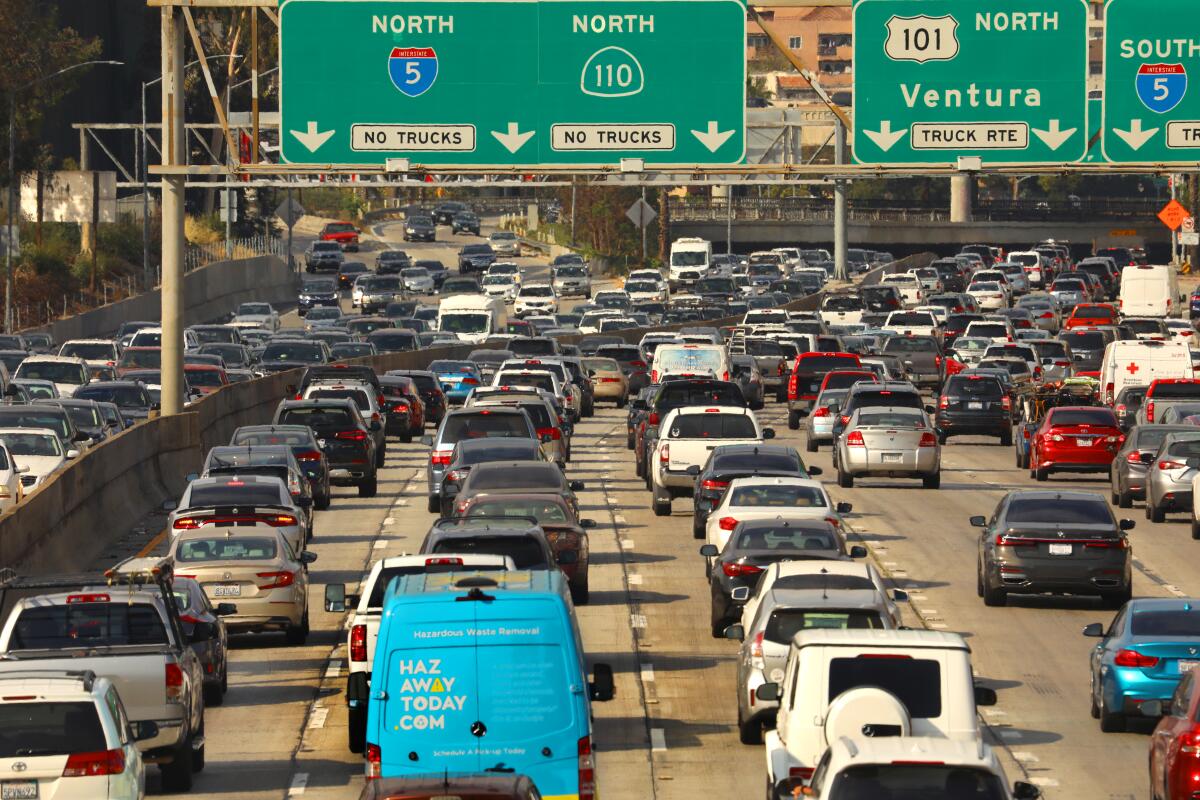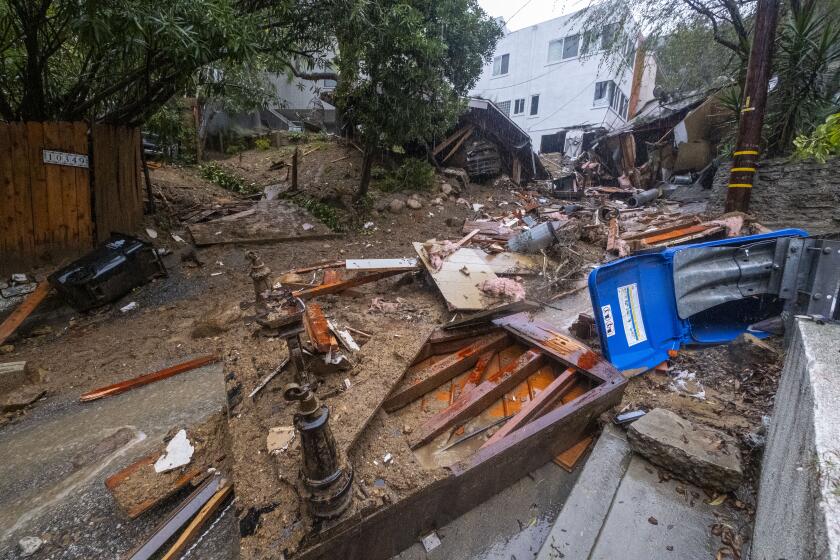A major auto insurer returns to California — with a 30% price hike

- Share via
California drivers can now buy an auto insurance policy directly from Allstate again, after the company hit pause on selling new insurance through its website or phone service to customers in the state last year.
But going back to business as usual comes with a cost. Allstate’s full return to the California auto insurance market only comes after regulators allowed the company to raise its rates by 30% on average across its whole book of business in the state.
“Our payments to help customers recover from accidents and disasters have increased significantly over the last few years,” an Allstate spokesperson said in a statement, noting that the company had continued selling policies through agents in California over the last year. “We need to adjust rates to reflect the cost of providing the protection our customers depend on.”
The increase for new and long-standing individual policyholders will occur on a case-by-case basis, according to a spokesperson from the California Department of Insurance, which has to approve all insurance rate increases in the state.
Birth rates have been trending downward in the U.S. for several decades and dropped precipitously during the pandemic. A key reason is the high cost of raising kids.
On the lower end, some customers might see prices go up 10% to 15%. At the high end, rates could go up as much as 55%. The vast majority of policyholders will see the price of their plans jump somewhere between 25% and 45%, the spokesperson said.
This is just the newest chapter of California’s ongoing insurance saga. While home insurers have pulled out of wildfire zones and, in many cases, ceased writing new home policies in the state altogether in recent years, auto insurers have been traveling down an equally rocky road.
In April 2020, as stay-at-home orders for the COVID-19 pandemic cleared California’s roads, Insurance Commissioner Ricardo Lara ordered auto insurers to refund customers for their premium payments during March, April, and in some cases May of that year. Companies ended up refunding $2.6 billion in overpaid premiums to customers, according to the department late last year.
At the same time, his department stopped approving the rate increases that auto insurance companies typically request to account for their changing costs of doing business. During two years in which inflation surged, especially in the used car and auto repair markets, the Department of Insurance didn’t approve any new rate increases for auto insurers at all, and only resumed in 2022.
Probably not. That’s because in Los Angeles County, home to nearly 10 million people, there are just 14,580 flood insurance policies on the books.
As a result, many insurers faced losses on their auto policies in 2022. State Farm’s largest subsidiary in the auto market paid out 92% of all the premiums it brought in to cover claims, which adds up to a net loss when agent salaries, marketing and other overhead costs are taken into account. Allstate didn’t fare much better, paying out 90% of its premiums just to cover claims — and multiple major divisions of Geico lost money outright on claims.
Taken as a whole, 2022 was the worst year on record for California auto insurers, according to Department of Insurance data, which go back to 1991.
Now, companies are making up for those losses by hiking rates. State Farm is raising rates by 21% on average starting this month, and Geico is raising them by 12.8%.
Allstate’s customers in California aren’t the only ones facing higher costs, however: The company is raising rates by 14.6% in New York and 20% in New Jersey. The company said that these three rate increases should bring in an extra $1 billion in premiums over the course of the year. Despite having $57 billion in revenue in 2023 across the country, Allstate lost $188 million last fiscal year.
More to Read
Inside the business of entertainment
The Wide Shot brings you news, analysis and insights on everything from streaming wars to production — and what it all means for the future.
You may occasionally receive promotional content from the Los Angeles Times.











